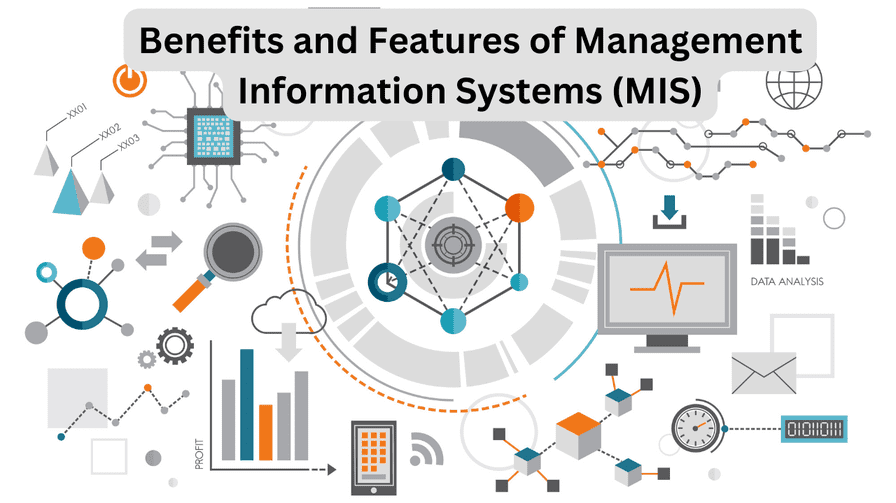
Published by College Buddy
|Thursday, October 24, 2024
In today’s fast-paced business world, staying on top of data and making informed decisions are essential for success. This is where Management Information Systems (MIS) come into play. Whether you are a student looking to understand how businesses function or someone interested in how technology supports decision-making, understanding MIS can give you a significant edge. This blog will dive into the benefits and features of MIS, helping you grasp the fundamentals in a simple and digestible way.
A Management Information System (MIS) is a structured framework that collects, processes, stores, and analyzes data to support decision-making in an organization. The primary goal of MIS is to ensure that managers have the right information at the right time to make informed decisions. It integrates both technology and business processes, acting as a bridge between people and computers.
Now, let’s explore the key features and advantages of MIS.
Understanding the features of MIS helps you see why it's so valuable for businesses. Here are some of the most important ones:
MIS gathers data from various sources, like internal databases, customer interactions, and business operations. It stores this data securely, making it easily accessible to decision-makers.
Once the data is collected, MIS processes it into a meaningful format, like reports, charts, or graphs. This helps managers quickly understand complex information.
One of the standout features of MIS is its ability to provide accurate and reliable information. By automating data collection and processing, MIS reduces human errors, ensuring the information used for decision-making is trustworthy.
MIS is designed to support decision-making at all levels. Whether it’s a day-to-day operational decision or a long-term strategic choice, MIS helps managers with the relevant information.
A well-designed MIS has a simple and easy-to-use interface. Managers and employees do not need to be tech experts to use it. This accessibility ensures everyone can use MIS effectively without much training.
Data security is crucial in any business. MIS ensures that sensitive information is protected through access controls and encryption, allowing only authorized users to access or modify data.
MIS integrates with other business systems like accounting, inventory, and human resources. This seamless integration ensures a holistic view of the business, helping managers to make better-informed decisions.
Now that we understand the features, let’s look at the advantages of MIS and why it is such a valuable tool for organizations.
One of the biggest benefits of MIS is that it provides managers with timely and relevant information, which improves the quality of decisions they make. Access to real-time data means managers can respond to changes more effectively.
By automating routine tasks like report generation, data processing, and information retrieval, MIS saves time and effort. This allows employees to focus on more strategic tasks, boosting overall efficiency in the organization.
MIS fosters better communication across different levels of the organization. It ensures that information flows smoothly from top management to employees and vice versa, reducing misunderstandings and improving coordination.
Automation and accurate data management lead to reduced costs. By minimizing manual work and preventing data errors, businesses can save money on operations and avoid unnecessary expenses.
MIS provides detailed reports and analytics, which help managers understand business trends, performance metrics, and customer behavior. These insights can lead to improved products, services, and overall business growth.
MIS allows businesses to manage their resources—financial, human, and material—more effectively. By analyzing data on resource usage, businesses can cut down on wastage and allocate resources more efficiently.
With access to accurate information and enhanced decision-making capabilities, companies using MIS often enjoy a competitive edge over those that rely on manual systems or outdated methods.
Suggested Posts: Management Information Systems (MIS)
You might be wondering, “Why should I, as a student, learn about Management Information Systems?” Well, here’s why:
In conclusion, Management Information Systems (MIS) play a critical role in modern businesses by improving decision-making, enhancing efficiency, and providing data-driven insights. By understanding the key features of MIS—such as data collection, processing, accuracy, and security—and its numerous advantages, students and future professionals can prepare themselves for a career that blends business acumen with technological expertise.